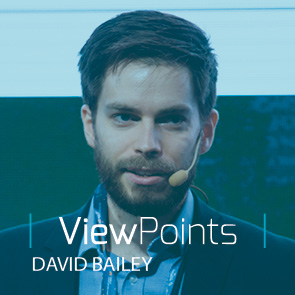
David Bailey is an experienced research and digital analytics professional, working across multiple research disciplines, covering: media, brand, propositions/marketing, strategy, UX, and digital analytics across advertising, entertainment and sports.
We sat down with David to chat about what’s new with the research team at Formula 1, how they are using innovation to drive insight (no pun intended ☺), and his predictions for the 2021 season!
How did you get into the world of market research and tell us about what you are doing now?
I started my career at Sky focusing on TV research, reporting the overnights, so how well the programmes did the previous day. I had about a five-year spell at Sky where I focused on everything from TV and digital data to primary research, both qual and quant research.
Sky gave me a great grounding for my current role at F1, where I work across research and analytics, and help propel our digital products by feeding in insights to help inform and grow the products. I work mainly on supporting the visual areas of the business, which includes on TV, F1.com, the apps, and growing the business in new and exciting ways. For example, at one point, esports was new; now it’s in its third season. I also support the licensing team as well, so quite a varied role.
It is quite well known that in the Bernie Ecclestone era, he didn’t value social media and digital channels. In that context, I’m keen to understand how the research function and the insight teams evolved under Liberty Media since 2017?
This last season is probably the best story to tell on that front, particularly regarding social media. This past year, social media engagement doubled year on year (e.g., ‘likes’, ‘comments’ and ‘shares’) across the four main social media platforms. And, we’re just short of 35 million followers globally, which has been another huge growth story.
We’re achieving greater reach across platforms by recognising that the social media platforms are different and therefore attract different audiences, and so tailor our content accordingly. In 2018, we introduced ‘Highlights’ just after the race, which is widely viewed. Anyone can go to YouTube and watch the qualifying or actual race after Sunday. This was controversial at the time because of the concern it would cannibalise the live broadcast audience, but that’s not been the case. The amount of content, and the team we have creating the content, is unique to the sport and really powerful, as shown in the data. For example, total viewing across F1.com, the F1 app and F1’s social media channels was up +46% vs 2019 to 4.9bn. That’s quite incredible growth.
It’s a great story for 2020, considering everything that’s happened. We’ve seen huge growth from a digital perspective.
Back in 2019, Formula 1 partnered with Walnut Unlimited and RealityMine, to better understand F1 fans digital experiences. How have you and the wider team been able to leverage those insights during the 2020 season, obviously, with all of the F1 events behind closed doors?
The insights we’ve gained through our ‘F1 Digital Race Experience’ work with Walnut Unlimited and RealityMine have been fantastic. When we started the work, we knew there was a lot of engagement with our platforms, but there was a gap in knowledge concerning how other media brands and touchpoints are utilised by F2 fans during a race week, and so the research was invaluable in informing us of what’s happening outside of the F1-owned and operated ‘estate’. Insights we gained from the ‘F1 Digital Race Experience’ research were able to boost our Virtual Grand Prix, which is a series that launched just as the racing was suspended, and featured influencers and celebrities racing. It was a great stand-in for the real thing. For example, we collaborated with YouTube influencers that were identified within the research.
Overall, 2020 was a bit of an unpredictable year, and we couldn’t use the research exactly as planned, but were able to use it on some interesting projects, such as the virtual Grand Prix series.
You’ve already touched on this, but given the challenges of 2020, how has that impacted on your research objectives and your ability to deliver against those over the past year?
Like every business, we had to change our plans for 2020. Fan engagement was exclusively digital, and so from a research perspective, that became an even bigger focus that expected in 2020 – the social media engagement numbers were well above what we expected. Our hypothesis is that due to the delayed season (starting in June rather than March) there was pent up demand just see the F1 action and share opinions and socialise with other fans. In places like the US, this was especially true – fans are often spaced apart geographically, F1 is not as popular as NFL, and so F1 becomes a fantastic social currency for fans of places like Reddit and Twitter, which has helped drive the sport. We’ve had some fantastic races as well, which is helping with the numbers. From a target perspective, we met or surpassed expectations on the digital front.
What are the main business needs that the research and insights function will be supporting?
Esports is key as ever I’d say, we’ve got the second virtual Grand Prix series that will launch at the end of January, following on from the 2020 series I mentioned earlier, and will again feature influencers and famous faces going up against our drivers..
Then, there is the topic of digital growth. 2020 was a fantastic year in terms of digital engagement, but I’m confident that we’ll have insights to propel that growth even more.
We also support the Licensing team, and last year they launched the first F1 fragrance, so there’s interesting and exciting products like that in the pipeline to allow fans access to the brand across different areas and categories.
We know the work that F1 have done with different agencies through various case studies, so keen to know, what do you look for when you’re assessing potential new agency partners?
One thing I always stress at conferences is that we’re constantly looking for innovative methodologies or technologies that can help us understand something new about our sport or the way it’s consumed.
For example:
- We’ve installed WiFi sensors at an F1 circuit, and that has allowed us understand how fans travel around the venue across the weekend – the footfall in different areas of the circuit, and where the most popular areas are around each circuit – which has been really interesting and fantastic.
- Another good example is the ‘F1 Digital Race Experience’ project with Walnut Unlimited and RealityMine, tracking a set of fans and their behaviour and how they use different F1 channels, both owned and not owned, has been really interesting. That’s going to be a project that we’re going to look back on and use to help us make different decisions.
- We’ve done large scale tracking of Reddit conversations, data mining of conversations, where the peaks and troughs are and the type of conversations that happen across the F1 sub-Reddit. That information is being churned through and put into a dashboard, which gives the motorsport team an understanding of what’s working and what’s not working in terms of the spectacle of it all.
- We also have F1fanvoice.com, which has over 100,000 members. The most important aspect for us is the surveys and the feedback we get from them, which is reported on weekly to senior management. It really is such a valuable resource. At least once a week, there would be a question that comes in and we just put it to an F1fanvoice survey for a very quick response. It means we’ve got our most avid fans at the touch of a button.
Overall, what is really exciting is innovation that can lead us to new and interesting insights.
What are you most excited about for the year ahead?
Focusing on F1, from a personal point of view, if Lewis Hamilton could claim an 8th Drivers Championship that would be an incredible achievement. He matched the 7 titles of Schumacher last year and to go one better would be an amazing feat. Also, Aston Martin are an exciting new name replacing the Racing Point team.
We also have a 23-race schedule for the first time ever, so after the Covid-impacted 2020 season it’s great to not only have a full season, but to see the sport grow too, starting in Bahrain in March!
Who’s your hot tip for the Driver’s Championship this year, you’ve already mentioned Lewis Hamilton, anyone else?
No tip for the title but expect the unexpected. This is the last season before some significant rule changes so it will be interesting to see how teams start to prepare and adapt for 2022 even during the 2021 season. That could mean differing car performances as the season progresses, depending on who is focused on what, so all in all I think we’re in for a really exciting and unpredictable season.
Lastly, if you weren’t working in your current role F1, what would be your dream job?
I used to be a DJ for 10 years or so, and I’d happily go back into that! I DJ’ed in local bars and clubs in Bournemouth and then in London too. I started a family quite early and I didn’t make music as well, which played a part in me switching careers. If I got back into it though, I’d try and get into making music, tour the world, and just live it up! Coinciding of course with an F1 race or two as well.



